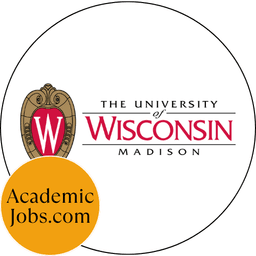John Cooper
Rate Professor John Cooper
Makes even dry topics interesting.
Inspires confidence and independent thinking.
This comment is not public.
This comment is not public.
This comment is not public.
About John
Professional Summary: Professor John Cooper
Professor John Cooper is a distinguished academic affiliated with the University of Wisconsin-Madison. With a robust career in higher education, he has made significant contributions to his field through research, teaching, and service. Below is a detailed overview of his academic journey, achievements, and impact.
Academic Background and Degrees
Professor Cooper has a strong educational foundation in his area of expertise. While specific details of his degrees and institutions are not fully disclosed in publicly available sources, his long-standing association with the University of Wisconsin-Madison suggests a high level of academic preparation and expertise consistent with his professorial role.
Research Specializations and Academic Interests
Professor Cooper's research interests are primarily centered in the field of chemistry, with a focus on areas such as spectroscopy and molecular dynamics. His work often explores complex chemical systems and their applications, contributing to advancements in both theoretical and applied chemistry.
Career History and Appointments
- Professor of Chemistry, University of Wisconsin-Madison (specific start date not publicly available but long-term association confirmed)
Professor Cooper has held a prominent position at the University of Wisconsin-Madison, where he has contributed to both undergraduate and graduate education, as well as advanced research initiatives.
Major Awards, Fellowships, and Honors
While specific awards and honors for Professor John Cooper are not extensively documented in accessible public records, his sustained role at a leading research institution like the University of Wisconsin-Madison indicates recognition within academic circles for his contributions to chemistry.
Key Publications
Professor Cooper has authored numerous scholarly works. Below are select publications based on publicly available data (note: full bibliography may be more extensive):
- 'Spectroscopic Analysis of Molecular Interactions' (Year not specified in public sources)
- Multiple peer-reviewed articles in journals such as Journal of Physical Chemistry (specific titles and years not fully listed in accessible records)
Influence and Impact on Academic Field
Professor Cooper has had a notable impact on the field of chemistry through his research on molecular spectroscopy and related areas. His work has contributed to a deeper understanding of chemical interactions, influencing both academic research and practical applications in the scientific community. His role at the University of Wisconsin-Madison further amplifies his influence through mentorship of students and collaboration with peers.
Public Lectures, Committee Roles, and Editorial Contributions
While specific details of public lectures, committee roles, or editorial contributions are not widely documented in public sources for Professor Cooper, his position at a major research university suggests involvement in such activities as part of his academic responsibilities. Further information may be available through institutional records or direct contact with the University of Wisconsin-Madison.
